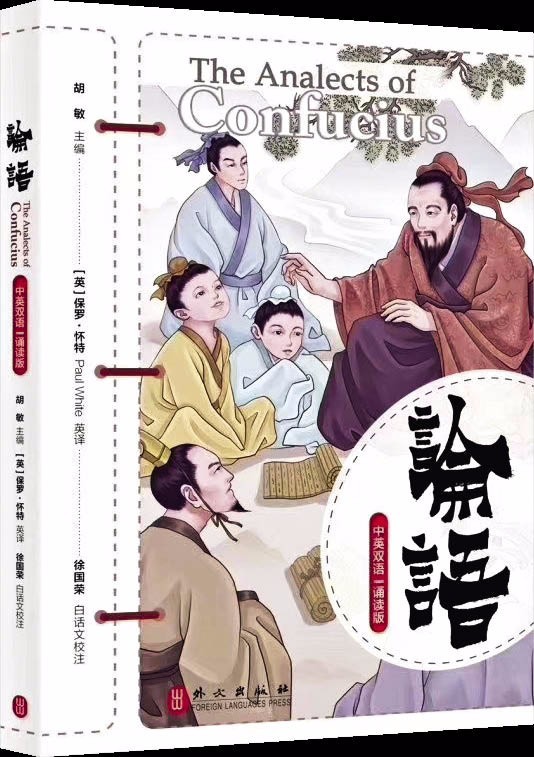
The Analects of Confucius
This book has had profound impact not only on Chinese culture, but also on the culture of some other Asian nations. After its contents were widely disseminated and known in East Asia, the “Confucius cultural cluster” was formed and The Analects of Confucius was translated into different languages, gaining worldwide reputation.
At the opening ceremony of the 2008 Beijing Olympic Games, thousands of people in the audience called out the famous sentence from the book, “Is it not delightful to receive friends coming from afar?” At Harvard University, there is a popular course which is well-known to have the power of changing people’s fate. The Chinese philosophy and classic works are taught in this class, including The Analects of Confucius, Mencius, and Tao Te Ching. Students are inspired and encouraged to apply the wisdom they learn from the class in their daily life.
On October 28, 2009, the House of Representatives of the U. S. approved a resolution to commemorate the 2,560th anniversary of the birth of Confucius and also recognized the invaluable contributions of Confucianism to humanity.
Confucius counseled introspection, self-cultivation, sincerity, and the observance of respect within social relationships as a means of achieving justice and attaining morality in personal and public life. This reflects a moral fiber of the highest degree. The teaching of Confucius, “What one does not wish for oneself, one ought not to do to anyone else; what one recognizes as desirable for oneself, one ought to be willing to grant to others,” is a model for ethical behavior and for the promotion of harmony among people. Confucius taught that an ideal government is founded upon loyalty, respect for the elderly, and recognition of the importance of family. Politicians, said Confucius, must be models of truthfulness and morality, which serves as a reminder to all of our duty to serve with the utmost honor and respect.
The editor-in-chief of The Analects of Confucius is professor Hu Min, a leading specialist in English-language teaching and education management. Professor Hu has conducted in-depth research into traditional Chinese culture, which has led the way for equipping talented people of the future with the necessary knowledge they need for global competence anchored in China.
Paul White, who was responsible for the English translation of the book, is a noted translator from the U.K. who also has a deep understanding of traditional Chinese culture. He has won the Chinese government’s National Friendship Award and the Special Book Award of China.
White said at the heart of Confucius’ teachings is the concept of the interaction of conduct and morality. If the people are ruled through punishment, they will perform their duties only to the extent that they keep out of trouble, but they will feel no shame in neglecting their duties. But if they are guided by moral precepts, they will fulfill their duties of their own accord.
The translations of The Analects of Confucius into English by such scholars as James Legge and Arthur Waley were accurate enough, but were done a century ago, making the language too old-fashioned, pedantic and unappealing to modern readers. One of the major aims of this book has been to present a new translation of the book that is both accurate and expressed in the English of today, so as to promote Chinese culture further across national and cultural boundaries.
Traditional Chinese culture, extensive and profound, embodies the tenacious spirit of the Chinese people in their long quest for spiritual riches. Right now, the Belt and Road Initiative is opening a new chapter for the world development. China seeks to forge a community with shared future for mankind which is mutually beneficial. The philosophical concept of “heaven and people are one” embodied in traditional Chinese culture, its cultural idea of “unity in diversity” and “worldwide unity,” all serve to create a new form of international relations with cooperative development and mutual benefit as the core. This endeavor is closely related to building a community with a shared future for mankind.
The world is eager to learn about China, and even more eager to learn about the core of Chinese culture. There is no boundary to the transmission of Chinese culture. As China’s international status has improved, more and more foreigners pay close attention to China, and the Chinese youth will have more opportunities to spread China’s culture to the world.